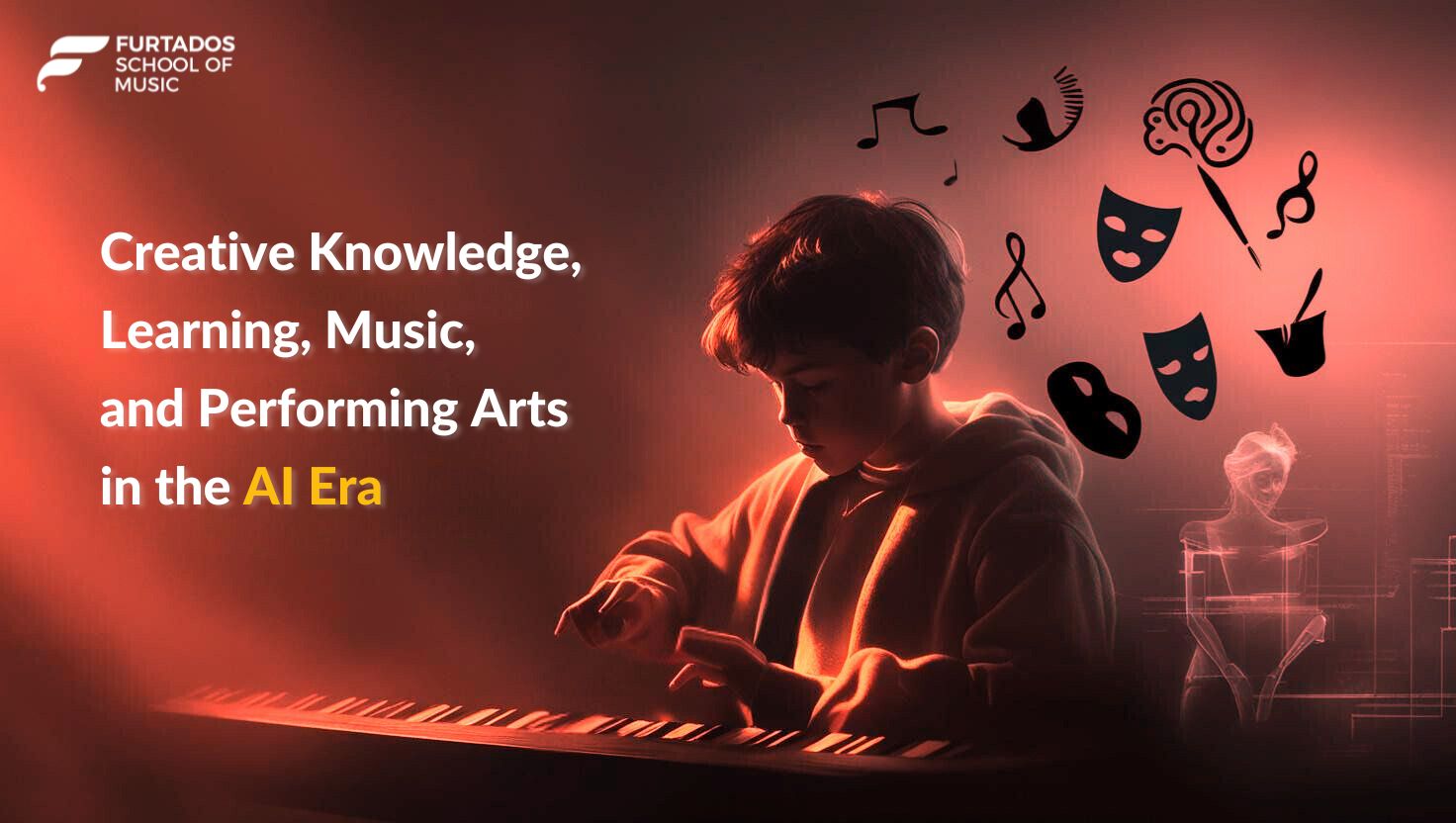As we stand at the dawn of an AI-driven era, many question the future of human creativity, learning, and the role of Music and Performing Arts. Will machines outpace us in every domain, or do our uniquely human qualities—creativity, adaptability, and emotional intelligence—give us an enduring edge? One thing is certain: fostering creative knowledge and exposing children to Music and Performing Arts is no longer a luxury but a necessity in preparing them for an AI-dominated world.
Creative Knowledge in the AI Era
Creative knowledge is the ability to think beyond traditional boundaries, innovate, and connect seemingly unrelated ideas to form something new. It thrives in uncertainty, ambiguity, and complexity—qualities that AI struggles to navigate. While AI can analyze data, execute logic-based tasks, and even generate ideas, it cannot replicate the emotional depth or imaginative leaps that define human creativity.
AI helps us excel in many domains:
- Chess Mastery: Programs like AlphaZero showcase incredible skill, often surpassing human grandmasters. Yet, the strategic thinking and creativity that inspired these tools remain uniquely human.
- Robotics: AI-driven robots perform complex tasks with precision, but designing them to reflect human needs and values requires deep creativity.
- App Development: AI can write code and suggest features, but the conceptualization of groundbreaking app ideas stems from human innovation.
These examples highlight a crucial distinction: while AI excels at execution, the inspiration, vision, and ethical considerations behind these innovations remain human domains.
But will Arts be an Essential Component to an AI Future ?
Music and performing arts over decades has stood as the primary channels for developing creative capital, emotional intelligence, and flexibility. These skills the children learn cannot be recreated by AI; therefore, this is an essential area for contemporary children.
Promoting Creativity:
Music and arts promote creative thinking and problem-solving as they challenge children to think of new ideas and express themselves in unique ways.
Performing arts teach improvisation, flexibility, and perseverance qualities that machines cannot replicate.
Creative Leadership:
The facilitation of originality and vision makes the arts support the growth of children toward being innovators and leaders;
Ethics and Emotional Awareness:
Art fosters reflection of values, empathy, and human conditions, thus governing ethical usage of AI. Music resonates with emotions on a deep level, teaching children to understand and express complex emotions.
Cultural Connection:
Music and theater help children explore their identities and connect with others, maintaining humanity’s shared heritage in a digital world.
Strengthening Cognitive and Social Skills:
Playing instruments, acting, or dancing builds focus, discipline, and teamwork. Group performances teach children teamwork and the value of the community.
Building Confidence and Resilience:
They help to overcome fear and, instead of shyness, give them confidence and make a child develop self-assurance. Instead of replacing human creativity, AI is in a position to supplement it. AI technologies review extensive datasets, automate boring jobs, and come up with ideas, thereby enabling people to focus on strategic, emotional, and creative angles.
For example:
Parents, educators, and policymakers must recognize the arts as essential in a balanced education. To prepare children for an AI-driven world:
Conclusion
In a world shaped by AI, creative knowledge and the arts are not nice to have, but rather must-haves. While AI helps us play chess better, build robots, and write apps, it cannot replicate human creativity, empathy, or innovation. Music and performing arts build skills that machines will never duplicate: imagination, adaptability, and emotional depth.
This, through the development of arts, music, and creative knowledge, equips children with the tools to be influencers rather than being influenced. In the collaboration between humanity and technology, music and performing arts remind us of our shared humanity, ensuring that in the era of artificial intelligence, we will not only survive but also thrive. Visit FSM website for more insights.
